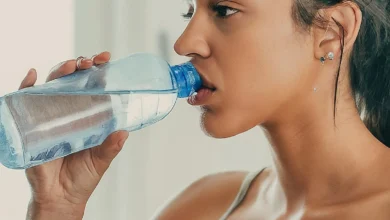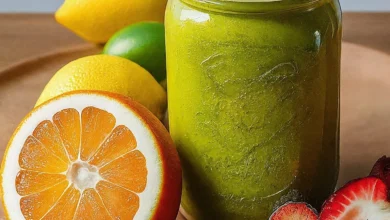Hydration’s Hidden Benefits: From Mood to Disease Prevention

Did you know that drinking water can do more than just quench your thirst? A recent study found that staying properly hydrated could lower your risk of chronic diseases and help you live longer. This surprising discovery is just one of the many hidden benefits of hydration we’ll explore in this article.
Introduction
Water is essential for life, but its importance goes far beyond basic survival. Proper hydration plays a crucial role in nearly every bodily function, from regulating body temperature to supporting brain health. Yet, many of us underestimate the power of this simple, life-giving liquid.
In this post, we’ll dive into the lesser-known benefits of staying hydrated. You’ll discover how water can improve your mood, boost your energy, and even help prevent diseases. So, grab a glass of water and let’s explore the hidden wonders of hydration!
Understanding Hydration
Before we delve into the benefits, let’s clarify what hydration really means.
What is Hydration?
Hydration refers to the process of providing your body with enough water to function optimally. It’s about maintaining the right balance of fluids in your body to support various physiological processes.
Recommended Daily Water Intake
How much water should you drink? Here’s a quick guide:
| Age Group | Recommended Daily Intake |
|---|---|
| Children (4-8 years) | 5 cups |
| Children (9-13 years) | 7-8 cups |
| Women (14+ years) | 9 cups |
| Men (14+ years) | 13 cups |
Remember, these are general guidelines. Your needs may vary based on factors like climate, physical activity, and overall health.
Signs of Dehydration
It’s crucial to recognize when your body needs more water. Here are some common signs of dehydration:
- Feeling thirsty
- Dark yellow urine
- Dry mouth and lips
- Fatigue or dizziness
- Headache
- Decreased urine output
Mood Enhancement and Cognitive Function
Did you know that water intake can affect your mood and brain function? Let’s explore this fascinating connection.
Hydration and Brain Function
Your brain is about 75% water, so it’s no surprise that hydration significantly impacts its performance. Even mild dehydration can affect your ability to think clearly and concentrate.
A study published in the Journal of Nutrition found that mild dehydration (1-2% loss of body weight) can impair cognitive performance, particularly in tasks requiring attention, memory, and psychomotor skills.
The Link Between Dehydration and Mood Swings
Feeling cranky? It might be time for a glass of water. Research suggests that dehydration can negatively affect your mood.
A 2012 study in the Journal of Nutrition discovered that mild dehydration increased tension, anxiety, and fatigue in young women. Similar effects were observed in men, although to a lesser extent.
Impact on Concentration and Memory
Proper hydration is crucial for maintaining focus and retaining information. When you’re well-hydrated, your brain cells can communicate more efficiently, leading to:
- Improved short-term memory
- Better concentration
- Enhanced problem-solving skills
By simply increasing your water intake, you could potentially boost your cognitive performance and maintain a more stable mood throughout the day.
Physical Performance and Energy Levels
Staying hydrated isn’t just good for your brain; it’s crucial for your body’s performance too. Let’s explore how water fuels your physical activities and keeps your energy levels up.
Hydration’s Role in Athletic Performance
Whether you’re a professional athlete or a weekend warrior, proper hydration is key to optimal performance. Here’s why:
- Improved endurance: Well-hydrated muscles work more efficiently, allowing you to exercise longer.
- Better strength: Hydration helps maintain muscle elasticity, potentially improving your strength output.
- Faster recovery: Adequate water intake helps flush out toxins and reduce muscle soreness after exercise.
A study in the Journal of Athletic Training found that even a 2% decrease in body weight due to fluid loss can lead to a noticeable decline in athletic performance.
How Water Helps Regulate Body Temperature
Your body uses water as a natural cooling system. When you exercise or are in a hot environment, you sweat to cool down. This process only works effectively if you’re well-hydrated.
- Sweating helps maintain a safe body temperature during physical activity.
- Proper hydration ensures your body can produce enough sweat to cool itself.
- Dehydration can lead to heat exhaustion or even heat stroke in extreme cases.
Energy Boost from Proper Hydration
Feeling tired? Before reaching for that coffee, try drinking a glass of water. Fatigue is often one of the first signs of dehydration. Here’s how staying hydrated can boost your energy:
- Improved blood flow: Water helps your heart pump blood more efficiently, delivering oxygen and nutrients to your cells.
- Enhanced metabolism: Proper hydration supports your body’s ability to convert nutrients into energy.
- Better sleep quality: Staying hydrated throughout the day can lead to more restful sleep, leaving you feeling more energized.
Digestive Health and Nutrient Absorption
Water intake plays a crucial role in maintaining a healthy digestive system. Let’s dive into how hydration affects your gut health and nutrient absorption.
Water’s Importance in the Digestive Process
Water is essential for nearly every step of digestion:
- It helps break down food in your stomach.
- It aids in the absorption of nutrients in your intestines.
- It softens stool, making it easier to pass through your system.
Without adequate hydration, your digestive system can’t function optimally, potentially leading to issues like indigestion and constipation.
How Hydration Aids in Nutrient Absorption
Proper hydration is crucial for your body to absorb and use the nutrients from your food effectively. Here’s why:
- Water helps dissolve vitamins, minerals, and other nutrients from your food.
- It assists in transporting these nutrients to your cells.
- Adequate hydration helps maintain the mucus lining in your intestines, which is crucial for nutrient absorption.
Prevention of Constipation
One of the most common digestive issues, constipation, can often be alleviated or prevented by increasing water intake. Here’s how water helps:
- It adds bulk to stool, making it easier to pass.
- It helps food move through your digestive tract more smoothly.
- Proper hydration keeps your intestines lubricated, facilitating easier bowel movements.
A study published in the European Journal of Clinical Nutrition found that increasing fluid intake in people with low daily fluid consumption can improve constipation and its associated symptoms.
Remember, while water is crucial for digestive health, it’s not a cure-all. A balanced diet rich in fiber, regular exercise, and proper hydration work together to maintain a healthy digestive system.
Skin Health and Anti-Aging Effects
Proper hydration isn’t just good for your insides; it can work wonders for your skin too. Let’s explore how drinking enough water can help you maintain a youthful, glowing complexion.
Hydration’s Impact on Skin Elasticity and Appearance
Your skin is your body’s largest organ, and like all organs, it needs water to function properly. Here’s how staying hydrated benefits your skin:
- Improved elasticity: Well-hydrated skin is more resilient and less prone to sagging.
- Better complexion: Adequate water intake can help give your skin a healthy, radiant glow.
- Reduced appearance of fine lines: Hydrated skin cells are plumper, which can minimize the look of wrinkles.
A study in Clinical, Cosmetic and Investigational Dermatology found that higher water intake positively affects skin physiology, especially in individuals who typically consume less water.
How Water Helps Flush Out Toxins
Your skin acts as a protective barrier, and proper hydration helps it perform this function more effectively:
- Water aids in flushing toxins from your body through sweat and urine.
- Adequate hydration supports your liver and kidneys in their detoxification processes.
- Well-hydrated skin is better equipped to repair itself and fight off environmental stressors.
The Role of Hydration in Preventing Premature Aging
While aging is a natural process, dehydration can accelerate it. Here’s how staying hydrated can help slow down premature aging:
- It supports collagen production, keeping your skin firm and supple.
- Proper hydration helps maintain your skin’s natural oils, preventing dryness and flakiness.
- Water aids in nutrient absorption, ensuring your skin gets the vitamins and minerals it needs to stay healthy.
Remember, while drinking water is crucial for skin health, it’s not a substitute for a good skincare routine and sun protection.
Weight Management and Appetite Control
Believe it or not, water intake can play a significant role in managing your weight and controlling your appetite. Let’s dive into how hydration can support your weight management goals.
Water as a Natural Appetite Suppressant
Drinking water before meals can help you feel fuller and potentially eat less. Here’s how:
- Water takes up space in your stomach, creating a feeling of fullness.
- Sometimes, thirst can be mistaken for hunger. Drinking water first can help you distinguish between the two.
- A study in Obesity found that adults who drank water before meals lost 44% more weight over 12 weeks compared to those who didn’t.
Hydration’s Effect on Metabolism
Proper hydration can give your metabolism a boost:
- Water-induced thermogenesis: Drinking cold water forces your body to expend energy to warm it up, slightly increasing your metabolism.
- Improved nutrient transport: Adequate hydration helps your body transport nutrients more efficiently, supporting overall metabolic function.
- A study in the Journal of Clinical Endocrinology and Metabolism found that drinking 500ml of water increased metabolic rate by 30% in both men and women.
The Importance of Replacing Sugary Drinks with Water
One of the simplest ways to cut calories and improve hydration is to swap sugary drinks for water:
- A 12-oz can of soda contains about 150 calories and 39 grams of sugar.
- Replacing just one soda a day with water can lead to significant calorie reduction over time.
- Water is calorie-free and supports your body’s functions without the negative effects of added sugars.
Remember, while increasing water intake can support weight management, it’s most effective when combined with a balanced diet and regular exercise.
Disease Prevention and Immune Function
Proper hydration plays a crucial role in maintaining overall health and preventing various diseases. Let’s explore how staying hydrated can boost your immune system and ward off certain health issues.
Hydration’s Role in Preventing Urinary Tract Infections
Urinary Tract Infections (UTIs) are common, but drinking enough water can help prevent them:
- Water helps flush bacteria from your urinary system.
- Adequate hydration dilutes your urine, reducing the concentration of infection-causing bacteria.
- A study in JAMA Internal Medicine found that women who increased their water intake had a 50% lower risk of recurring UTIs.
How Proper Hydration Supports Kidney Function
Your kidneys play a vital role in filtering waste from your blood, and they need plenty of water to do their job effectively:
- Water helps your kidneys remove waste products through urine.
- Proper hydration can help prevent kidney stones by diluting stone-forming substances in urine.
- Staying hydrated supports overall kidney health, potentially reducing the risk of chronic kidney disease.
The Link Between Hydration and a Strong Immune System
Staying hydrated is essential for a well-functioning immune system:
- Water helps produce lymph, which carries white blood cells and other immune system cells.
- Proper hydration supports the mucous membranes in your nose and throat, which act as barriers against pathogens.
- Adequate fluid intake helps flush toxins from your body, supporting your immune system’s efficiency.
Headache Relief and Pain Management
If you’re prone to headaches, increasing your water intake might provide some relief. Let’s examine the connection between hydration and pain management.
Dehydration as a Common Cause of Headaches
Many people don’t realize that dehydration can trigger headaches:
- Even mild dehydration can cause blood volume to drop, reducing blood flow to the brain and leading to headaches.
- A study in the journal Headache found that increasing water intake helped reduce headache intensity and duration in dehydrated individuals.
How Hydration Can Help Alleviate Certain Types of Pain
Proper hydration can help manage various types of pain:
- Joint pain: Water acts as a lubricant for your joints, potentially reducing discomfort.
- Muscle cramps: Dehydration can lead to electrolyte imbalances, which may cause muscle cramps. Staying hydrated can help prevent this.
- Back pain: The discs between your vertebrae need water to maintain their height and alignment. Proper hydration can help prevent some types of back pain.
The Importance of Hydration in Preventing Migraines
For migraine sufferers, staying hydrated is particularly crucial:
- Dehydration is a known migraine trigger for many people.
- Drinking water at the first sign of a migraine may help reduce its severity.
- Consistent hydration may help reduce the frequency of migraines in some individuals.
Improved Heart Health
Proper hydration is essential for maintaining a healthy heart. Let’s explore how water intake affects your cardiovascular system.
How Proper Hydration Supports Cardiovascular Function
Water plays a vital role in heart health:
- It helps your heart pump blood more efficiently through your blood vessels.
- Adequate hydration maintains proper blood viscosity, reducing strain on your heart.
- Water helps maintain the right balance of electrolytes, which are crucial for heart function.
The Link Between Dehydration and Increased Heart Rate
When you’re dehydrated, your heart has to work harder:
- Dehydration reduces blood volume, causing your heart to beat faster to maintain blood flow.
- A study in the Journal of Strength and Conditioning Research found that dehydration led to increased heart rate during exercise.
Water’s Role in Maintaining Healthy Blood Pressure
Staying hydrated can help manage blood pressure:
- Proper hydration helps maintain blood volume, which is crucial for healthy blood pressure.
- Some studies suggest that adequate water intake may help lower blood pressure, especially in people with hypertension.
- Dehydration can cause blood vessels to constrict, potentially leading to increased blood pressure.
Remember, while hydration is important for heart health, it should be part of an overall healthy lifestyle that includes a balanced diet and regular exercise.
Tips for Staying Hydrated
Now that we understand the numerous benefits of hydration, let’s explore some practical ways to increase your water intake and stay properly hydrated throughout the day.
Creative Ways to Increase Water Intake
Try these simple strategies to boost your daily water consumption:
- Set reminders on your phone to drink water regularly
- Carry a reusable water bottle with you everywhere
- Drink a glass of water before each meal
- Use a straw to make drinking water easier and more enjoyable
- Try flavoring your water with fresh fruits or herbs
- Eat water-rich foods (see table below)
- Use a water tracking app to monitor your intake
Foods with High Water Content
Eating foods with high water content can contribute to your daily fluid intake. Here’s a table of some hydrating foods:
| Food | Water Content |
|---|---|
| Cucumber | 96% |
| Tomatoes | 94% |
| Watermelon | 92% |
| Strawberries | 91% |
| Cantaloupe | 90% |
| Peaches | 89% |
| Oranges | 88% |
| Zucchini | 95% |
The Importance of Electrolytes in Hydration
While water is crucial, electrolytes also play a vital role in hydration:
- Electrolytes help regulate fluid balance in your body
- They’re essential for proper nerve and muscle function
- Common electrolytes include sodium, potassium, and magnesium
- You can get electrolytes from a balanced diet or sports drinks (in moderation)
Remember, for most people, plain water is sufficient for staying hydrated. However, if you’re exercising intensely or in hot conditions, you might need to replenish electrolytes as well.
Conclusion
As we’ve explored throughout this article, the importance of staying hydrated extends far beyond simply quenching your thirst. From enhancing your mood and cognitive function to supporting heart health and disease prevention, proper hydration is a cornerstone of overall well-being.
Let’s recap some of the hidden benefits of hydration we’ve discovered:
- Improved mood and cognitive performance
- Enhanced physical performance and energy levels
- Better digestive health and nutrient absorption
- Healthier, more youthful-looking skin
- Support for weight management efforts
- Strengthened immune function and disease prevention
- Potential relief from headaches and certain types of pain
- Improved heart health and blood pressure regulation
By prioritizing your water intake, you’re taking a simple yet powerful step towards optimizing your health. Remember, every system in your body depends on water to function properly.
As you go about your day, keep in mind the numerous ways that staying hydrated can benefit you. Make a conscious effort to drink water regularly, and your body will thank you with improved performance, better health, and an enhanced sense of well-being.
So, why not start now? Grab a glass of water, and toast to your health. Your journey to better hydration and improved wellness begins with this simple act. Here’s to a healthier, happier, and more hydrated you!



